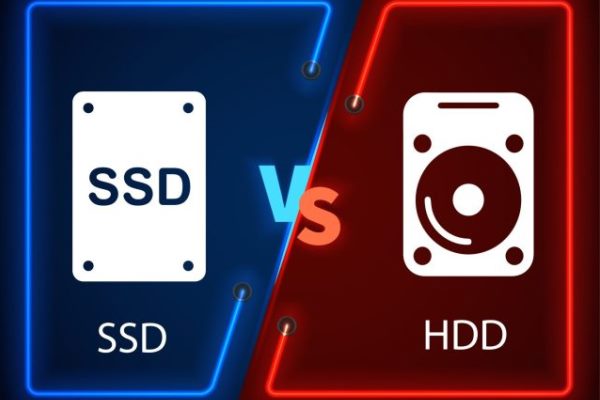SSD and HDD Hosting summary
What are SSD and HDD?
Over the previous few years, most of the foremost net
hosting corporations have transitioned their knowledge center hardware from net
servers put in with ancient fixed disk Drives (HDDs) to new Solid-State Drives
(SSDs) for higher performance and quicker speeds. Some corporations still
supply net hosting plans supported HDD storage at a less expensive value than
SSD configurations, significantly on dedicated server and VPS accounts. On
shared hosting plans, it's not continuously clear whether a corporation offers
HDD or SSD storage on their hardware, though most web hosts conspicuously
advertise SSD storage capability after they have it put in on their platforms.
Overall, it's necessary to the performance variations between the 2 main
storage standards and to judge competitive net hosting plans with regards to
the price basis per GB of storage capability provided under every format.
What is the distinction Between SSD
and HDD?
Hard Disk Drive (HDD) storage technology dates to the
Fifties and operates equally in some ways to record player recordings or vinyl
records. knowledge is kept in patterns magnetically on a spinning machine with
every drive equipped with a sensing element equipment that will hunt down the
knowledge and send it to the processor. knowledge transfer speeds vary with the
create or model of the instrumentality, rate standards (5400/7200), the
"disk-to-buffer" rate enforced, yet as per the bus kind that connects
the HDD to the motherboard. the foremost bus sorts for HDDs embody PATA, SATA,
SCSI, SAS, and Fiber Channel. HDDs are almost like the "floppy disk"
drives that predominated within the early era of computing, though they're
currently factory-made to support terabytes (TBs) of information storage.
In distinction, Solid State Drives (SSDs) became common
around 2009 and contain no rotating elements in their style, created rather
from NAND-Flash memory almost like what's employed in RAM chips or thumb
drives. SSDs supply a lot of quicker read/write times on knowledge transfers
compared to HDDs primarily as a result of there's no head and arm mechanism want
to hunt down the knowledge. SSDs use integrated circuits to store digital files
in binaries rather than magnetic attraction recording technology. In benchmark
tests conducted on net servers, SSDs were shown to transfer ninety-fifth a lot
of knowledge underneath serious strain than HDDs and to perform on the average
at rates of 20x quicker in the process I/O requests. SSD hosting
performance is additionally determined by the info transfer speeds allowable by
the bus kind, of that SAS, SATA, PCI specific, Fiber Channel, USB, & PATA
area unit all oft employed in net hosting.
SSD VS. HDD – COMPARISON
When SSDs became common within the shopper market in 2009,
they were ab initio priced quite expensively when putting next to HDDs of equal
storage capability (measured in GBs or TBs). As most of the foremost net
hosting corporations had already invested heavily in their knowledge center
hardware, the introduction of SSDs within the marketplace ab initio proceeded
on the model of premium upgrades or elite server provisioning. However, because
the value of SSD technology has minimized each} net hosting company is forced
to frequently upgrade their net server hardware every 2-3 years because of
planned degeneration or redundancy, SSDs have begun to switch HDDs across the
board as an actual commonplace common to each net hosting arrange, primarily
because of shopper demand, trade competition, and superior performance. the
foremost advantage of victimization HDD storage in 2018 is that it's on the
market less expensive than comparable SSD
hosting instrumentality. most of the cloud hosting found within the
marketplace nowadays relies on SSD standards, with solely a tiny low sector of
the budget hosting trade giving low cost shared hosting plans still hoping on
HDDs solely. HDDs even have a considerably higher fail rate in production when
putting next to SSD
hosting, though some corporations will cash in of the price advantage of
HDDs for knowledge backups, offsite storage, and hosting giant digital archives
for downloads.
SSD Vs. HDD - Hosting Speed
In the net hosting trade, the performance speed of SSD
storage over HDD technology is thus nice that web site homeowners are literally
at a competitive disadvantage if they fail to sign in for a concept supported
SSDs. In sensible terms, however, this can be most significant for extremely
trafficked websites and mobile applications whereas the distinction won't even
be noticeable to little sites betting on the hardware configuration and user
account density per machine. net hosting corporations additionally use a
variety of ways to boost the performance of gift HDD-based instrumentality and
save cash on provisioning. one of these is to run the MySQL info for websites
from SSD hardware and serve the static files from HDD instrumentality. Another
is to use reverse-proxy file caching and cargo equalization on network traffic with
multiple copies of internet sites running in bicycle-built-for-two on shared
plans. This format permits user traffic to be routed to the hardware with the
smallest {amount} amount of activity, generating higher response times on gift
HDD-based net servers.
Other factors to contemplate with net storage performance
speeds area unit the DNS server, the utilization of Associate in Nursing
integrated CDN service for file caching, and virtual RAM (vRAM)
implementations. because the net hosting company ordinarily manages the DNS
server for shoppers, they'll save cash on bulk shared hosting plans by running
the DNS requests through premium, SSD-based hardware for quicker response times
whereas hosting low traffic accounts on gift HDD-based net servers. CDN services
will improve the page load speeds of shared hosting account users WHO area unit
stuck on HDD instrumentality and infrequently enclosed as a free bonus feature
on these plans. Some net hosting corporations supply premium upgrades to SSD hosting
at the next value whereas delegation they're shared hosting customers to gift
HDD instrumentality with slower speeds. As several web hosts implement vRAM
solutions on shared accounts that increase the number of RAM on the market to
CMS sites by running on a storage partition, it's significantly necessary to
create positive that these plans embody SSD hosting
or the CMS response times are going to be perceptibly slow. Similarly, several
hosting corporations supply "Cloud" VPS plans with SSD hardware
choices at a rather higher value than HDD-based choices with far better
performance rates.



Comments
Post a Comment